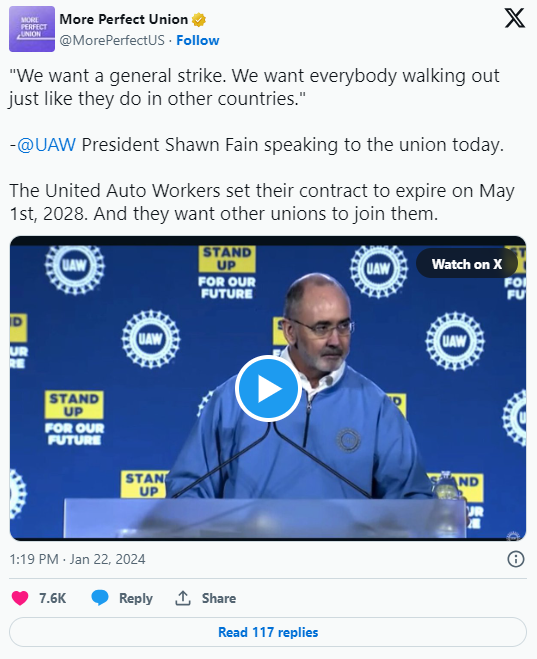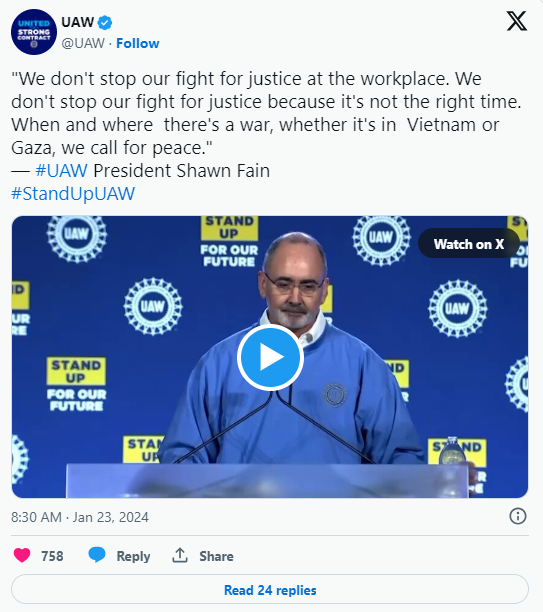Image via SACP
Originally published: South African Communist Party (SACP)
Reposted from MR Online
The South African Communist Party (SACP) Political Bureau held a special meeting on Wednesday, 5 June 2024, in Johannesburg. This sitting was preceded by a meeting of the National Office Bearers with the Secretariat as the core on Monday, 3 June 2024, a day after the Independent Electoral Commission announced and declared the results of the May 2024 national and provincial government elections as free and fair. As part of the consultative process, the Political Bureau was extended to and attended by SACP provincial secretaries and chairpersons.
The SACP wishes to take this opportunity to thank all South Africans who exercised their democratic right to vote and to express the Party’s sincere gratitude to all the people, with the working class being the majority, who voted for our ally, the African National Congress. The SACP campaigned for the ANC across the length and breadth of our country within the framework of our ANC-led Alliance, its collective achievements, reconfiguration engagements and jointly consulted manifesto.
The votes received by the ANC maintain it as the largest party by electoral support in our country and reaffirm its outright majority in five provinces: Limpopo with 73.3 per cent, Eastern Cape with 62.16 per cent, North West with 57.73 per cent, Free State with 51.87 per cent and Mpumalanga 51.15 per cent. This is the will of the people. The SACP will defend it in advancing working-class interests across the board and considering the way forward nationally and in provinces where the ANC, although remaining the largest party by electoral support, did not secure the 50 per cent plus one required to form a majority government.
Matters of principle, guided by the interests of the working class, maintaining strategic consistency
We have campaigned against the anti-worker neo-liberal and corrupt state capture networks.
To maintain strategic consistency, the SACP is against seeking a coalition arrangement with the right-wing, DA-led anti-ANC neo-liberal forces. The core of the DA-led neo-liberal forces, highly supported by dominant sections of capital, mainly the white bourgeoisie whose roots can be traced to the era of colonial and apartheid oppression of the black majority, organised itself into the so-called multi-party charter. This grouping also received support from western foundations.
In the same vein, the SACP is against seeking a coalition arrangement with the MKP, whose origins can be traced back to factionalism, the corruption of state capture and resistance to accountability, as outlined in the report of the Commission of Inquiry into State Capture and related Constitutional Court judgments.
Neo-liberal economic restructuring, which includes retrenchments—those announced during the May 2024 election campaign period in the mining and other sectors included, opposition to the national minimum wage, attacks on our collective bargaining framework and resistance to National Health Insurance, among others, has severely impacted the workers and impoverished populations of our country. These forces remain arrogant and anti-working class as evidenced in the DA’s reckless utterances.
The industrial-scale looting under state capture crippled many of our state-owned enterprises, public entities and financial resources, negatively impacting the capacity of our state to serve the people. The factional conduct and ethnic nationalism of those driving the MKP have negatively impacted our own, ANC-led movement, and the ANC’s electoral performance.
The votes and number of seats from the May 2024 national and provincial government elections offer coalition permutations, with the features of a developmental and transformation purpose-driven ANC-led Government of National Unity, excluding both the DA and the MKP. The SACP will actively pursue this to become the outcome of the ANC-headed Alliance coalition engagement process—both within the Alliance and publicly through campaigning and mobilisation of the working class. This strategic task, outlined in our programme adopted during the July 2022 Fifteenth National Congress of our Party, is crucial in defending and advancing the interests of the working class against its strategic adversaries.
The strategic adversaries of the working class include the neo-liberal and “looting” class networks, as well as fugitives from justice who have profited from state capture and fled South Africa to evade accountability. Intensifying efforts to track down and hold accountable those who were involved in and benefitted from the proceeds of state capture corruption and fraud must be a central component of the programmatic basis of the coalition arrangements that our movement should pursue.
In pursuing the ideal scenario under the circumstances and in the interests of the working class, the SACP will prioritise governance stability over the instability often associated with local government coalitions.
The coalition associated instability in local government has hindered effective governance and delivery of public goods and services and must be avoided, through clear guarantees. We will also insist on accountability and the interests of the people, especially the majority—the working class.
The interests of the working class encompass priorities such as large-scale employment creation to resolve the unemployment crisis through industrialisation and structural economic transformation, poverty eradication, the implementation of a developmental and transformative macroeconomic policy to achieve these goals alongside other working-class interests.
A more caring social policy, including a decisive advance towards a universal basic income grant and the rollout of the National Health Insurance to ensure quality healthcare for all, form part of crucial working-class interests.
The protection of workers’ rights and other achievements, along with addressing challenges impacting the delivery of public goods and services, including infrastructure development and maintenance in municipalities, should be integral components of the programmatic basis of the coalition arrangements that our movement should seek.
Rolling back austerity measures and other neo-liberal policy prescriptions will be crucial for achieving an economic turnaround and ensuring the provision of essential social services, such as quality healthcare. This must be included in the programmatic basis of coalition arrangements.
Internationally, we remain firm in our unwavering support for the people of Palestine against the genocide on them and expropriation by the apartheid Israeli settler state.
Maintaining the entire progressive thrust of South Africa’s international relations and co-operation policy, including deepening alignment with the BRICS Plus community of states and solidarity support for Cuba against imperialist aggression, should be upheld as part of the programmatic basis of the coalition arrangements that our movement should advocate for.
The Independent Electoral Commission
The Political Bureau commended the IEC but expressed deep concern regarding the issues that affected the elections from the commission’s side.
The concerning issues include major technological breakdowns, which contributed to delays in the voting process and system downtime disruption of the counting process. An investigation into why these issues occurred is essential.
The investigation must include examining where the IEC sourced the technology it used. If it was sourced from another country, the investigation must assess that country’s attitude and its current relations with ours at present and the implications these may have had.
The investigation is crucial to prevent future disruptions and secure the credibility of our elections, safeguarding our democratic national sovereignty.
Detailed assessment
The Political Bureau meeting focused on the immediate question of coalition arrangements in view of the imperative for a new government to be established in line with the tight constitutional and electoral law timeframes.
The next step, going forward, will be an in-depth assessment of the May 2024 national and provincial government elections, considering all variables that played a part in the results. This will guide the enhancement of the programmatic basis of the coalition arrangements that we wish to see our movement pursuing.
The in-depth assessment will also inform the direction that the SACP will take at its Special National Congress later this year, as well as at the 16th National Congress of the Party in 2027, regarding future elections.
Issued by the South African Communist Party,
Founded in 1921 as the Communist Party of South Africa.







